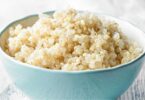In recent years, there has been an increasing focus on the connection between food and mood. Could the food you eat have an effect on depression? Does nutrient-rich food make a difference in how you feel? In this article, we will take a look at how diet and nutrition can impact depression and the steps you can take to ensure you get the nutrients you need to support your mental wellness.
1. The Impact of Unhealthy Diets on Mental Health
Nutrition plays a critical role in overall mental health and wellness, and research has shown that having an unhealthy diet can lead to an increased risk for depression. Unhealthy eating habits such as skipping meals and eating junk food can lead to an increased risk of short-term and long-term depression.
The foods we consume often directly influence how we feel. Low nutrient value and energy-dense processed foods are often loaded with sugar, refined flour, and unhealthy fats, which are all harmful to mood and can reduce the production of serotonin (known as the happy hormone).
Junk food can also induce a physical addiction through its high-sugar, high-fat combinations, which can trigger cravings and lead to over-consumption such as binge eating. Binge-eating often causes feelings of guilt and shame, which can further impair mental health.
On the other hand, having a balanced diet full of healthy, nutrient-dense foods such as fresh fruit and vegetables, whole grains, and lean proteins can help to boost serotonin production, increase energy, and improve overall mood. Eating a balanced diet high in essential vitamins and nutrients can also help to promote physical health, and boost feelings of well-being.
Ultimately, improving nutrition and maintaining regular meals can help to provide long-term improvements to mental health. Eating a balanced diet, rich in fresh fruit and vegetables, can help to keep brain cells working efficiently, supporting a healthy and positive state of mind.
2. Foods That Can Help Reduce the Risk of Depression
Foods Rich in Folate (Vitamin B9)
Folate, or Vitamin B9, is a critical vitamin for brain health, as it helps maintain healthy levels of serotonin and dopamine in the brain. Folate-rich foods, such as green leafy vegetables, beans, lentils, and citrus fruits, are essential in preventing depression. The National Institutes of Health recommends that adults consume 400 micrograms of folate each day in order to reduce the risk of depression.
Foods Rich in Omega-3 Fatty Acids
Omega-3 fatty acids are essential for healthy brain development, and they play a role in the prevention of depression. Omega-3 fatty acids are found in fatty fish such as wild-caught salmon, sardines, mackerel, herring, and anchovies. Other sources of Omega-3 fatty acids include flaxseed, walnuts, chia seeds, and some vegetables. Eating a diet rich in Omega-3 fatty acids helps diminish depressive symptoms.
Foods Rich in Vitamin D
Vitamin D is an important vitamin for overall health, but it is especially important for mental health. Vitamin D helps reduce inflammation in the body and has been linked to a decreased risk of developing depression. Vitamin D can be found in fatty fish such as salmon, tuna, mackerel, and herring, as well as egg yolks, some mushrooms, and fortified dairy products such as milk and yogurt. It is also available in supplement form.
Herbal Supplements
Certain herbal supplements, when taken in the right dosage and under the supervision of a qualified health practitioner, can help reduce the risk of depression. These include St. John’s Wort, Rhodiola Rosea, S-adenosylmethionine (SAMe), and 5-hydroxyptryptophan (5-HTP). These supplements should not be taken without consulting a health practitioner, as they can interact dangerously with certain medications.
Overall Health Benefits
Eating a balanced diet not only reduces the risk of depression, but also helps prevent other illnesses and maintain overall health. Eating a diet that is rich in fruits, vegetables, healthy proteins, and healthy fats will help ensure that your body gets all the nutrients it needs to stay healthy. Exercise is also important for overall health, and has been linked to a decrease in depressive symptoms.
3. Maintaining a Balanced Diet for Mental Wellbeing
Many factors can affect mental wellbeing, but did you know that diet can also play an important role in how we cope with depression? Eating the right nutrients and foods can help the body and mind work in harmony to fight against depression.
But how exactly does diet affect depression? Let’s explore:
- Boosting Your Serotonin Levels – Eating certain foods can increase your serotonin levels, which is known as the ‘happy hormone’. These foods help regulate our mood and, when increased, make us feel content and cheerful. Foods rich in tryptophan, such as turkey & chicken, will work to naturally increase your serotonin levels and help combat depression.
- Calming the Mind – Eating foods that contain omega-3 fatty acids, such as fish and nuts, is a great way to feel relaxed. These foods help calm the mind by working to reduce stress, anxiety and inflammation, and in turn, help cure depression.
- Whole-Grain Complex Carbohydrates – Whole-grain complex carbohydrates provide us with energy and vital minerals – both of which can help combat depression. These carbohydrates contain magnesium which helps the nervous system, as well as vitamin B, which increases energy and natural serotonin levels.
- Eating Regularly - Eating regularly is important for maintaining balanced moods. Consuming unhealthy or empty calorie foods, such as processed snacks and foods high in refined sugar and refined carbohydrates, can further exacerbate depression.
While taking medicine for depression is essential for some, for others addressing the underlying issues can make a profound difference in combating the condition. As it turns out, diet may be a part of the answer. Eating the right foods can help increase serotonin and stabilize moods. Additionally, it’s also important to ensure your overall eating habits are healthy by eating regularly and avoiding things like processed snacks.
4. Exploring the Relationship Between Diet & Mood
Health professionals around the world have long speculated that food could have an impact on mood. And with the ever-growing amount of dietary and nutritional studies, it’s increasingly difficult to ignore the strong correlations between diet and mood. But how exactly does diet affect our mental and emotional wellbeing? Today, we are taking a closer look into the relationship between diet and depression, and what we can do to support our mood through healthy eating.
- Healthy food can help to regulate mood. The hormones and chemicals produced by our body (such as serotonin and dopamine) play a huge role in regulating emotion and mood. By ensuring a balanced diet full of healthy fats, essential vitamins and minerals, we can ensure that these hormones and chemicals are balanced and our moods are regulated.
- Unhealthy food consumption can lead to worsened depression. Studies have linked unhealthy food consumption to worsened depression and anxiety. Eating processed and sugary foods, in particular, can lead to an array of physical and mental health issues, including depression. Eating too much saturated fat can also throw our hormones out of balance, increasing our risk of mental health issues.
- Certain types of food can reduce the risk of depression. As previously mentioned, regulating our hormones and chemicals with a nutritious diet can positively influence our mood and reduce the risk of depression. Eating certain types of food, such as whole grains, fruits and vegetables, fatty fish and dark chocolate, can help to boost serotonin levels – the ‘happy hormone’ – while other types of food like nuts and seeds are known for their mental health benefits.
- The important thing is to strike a balance. Eating healthily doesn’t mean cutting out those treats we all love now and again. Moderation is key here. Finding a healthy balance between the food we eat and the nutrients we are getting is essential when it comes to reducing the risk of depression and keeping our wellbeing in check.
By making small changes to our diets and exploring alternatives, we can help to reduce our risk of depression and maintain a balanced, positive outlook. So next time you’re thinking of reaching for some sugary treats, take a moment to think of your mood – and healthy alternatives!
5. Making Dietary Changes for Long-term Positive Mental Health
When it comes to depression, our usual approach focuses on therapy and medication. Whilst these resources are essential for helping manage depression, it is also important to understand how diet can play a crucial role. As evidence emerges, nutrition may have a direct effect on mood, making dietary modifications an important part of overall mental health.
Certain foods affect neurotransmitters in our brain, therefore, they can either improve or affect one’s feelings of sadness or happiness. Here’s a list of food items that can help bring about positive mental health in the long-term:
- Plant-based proteins such as beans, nuts, seeds, and lentils.
- Fermented foods like yogurt, kimchi, and miso.
- Fruits and vegetables, especially leafy greens like spinach.
- Omega-3 fatty acids such as anchovies, salmon, flaxseed, and chia seeds.
- Whole grains such as quinoa, barley, and oats.
- Probiotics to boost gut health and digestion.
On the other hand, foods to stay away from include increased processed sugar and processed food. The biggest factor in is consuming food with a healthy balance of nutrients and minerals that are important to maintain proper brain function.
In addition, making it a priority to eat foods rich in antioxidants, vitamins, and essential fatty acids can ensure your body is properly nourished. Taking stock of your current dietary habits and understanding which foods positively and negatively affect your mental health is essential to make dietary changes that will benefit you in the long-term.
Overall, it is clear that the foods we eat have a significant impact on many aspects of how we feel and behave – and this is especially true for those suffering from depression. Therefore, it is essential to understand which foods are linked to depression and to make mindful choices in your diet to improve your mental health and outlook. With a few simple changes to your diet, your mood could greatly improve – making it well worth the effort!








